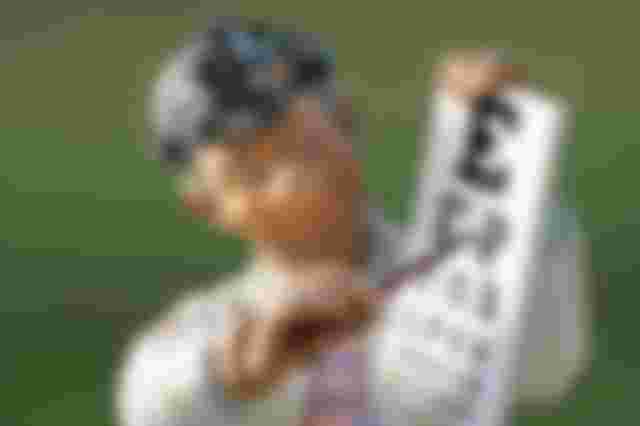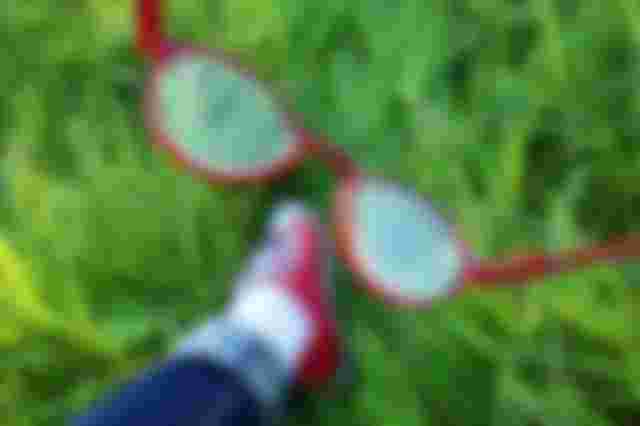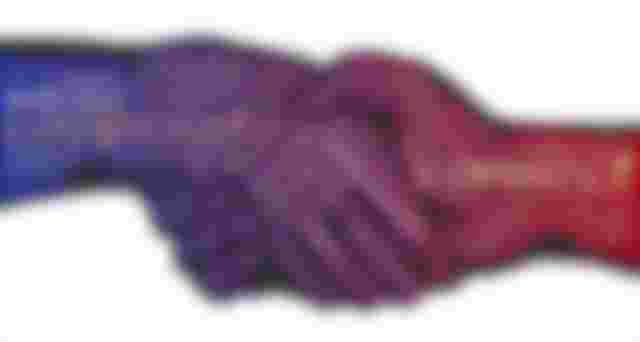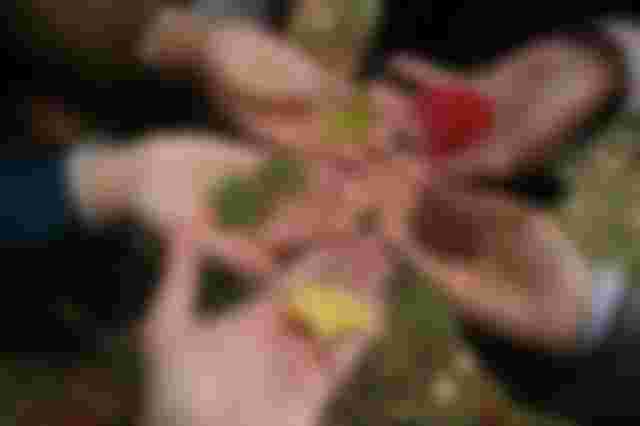This simple story, a popular fable that we can find in our life lesson readings, tells in a very funny way what happens when someone behaves selfishly. It teaches children and the not so young that others must be taken into account, because ours may depend on their well-being. Making a synthesis:
Once upon a time there was a person who began to have difficulties with his vision. His head ached when, despite all this, he concentrated on reading. So he thought it was time to visit an eye doctor. The specialist issued his technical opinion: "It is essential to wear glasses."

Upon hearing the news, the man's nose began to complain. I'll have to bear the weight of that horrible hulk on my back? Well, I don't even know think. I will not admit anything above myself that would take away my freedom of movement.
His ears said: «Hey nose, you think you're the only one who will have to carry weight. So do we, and still we think it's necessary. You have to sacrifice. "Nothing about that," the nose commented, mine is to oxygenate, not to be a pack donkey ».
For his part, the eyes begged him: «Nose, we are tired. We need support to continue doing our job. That's not my problem. I do mine without difficulties ».
The mouth, with its proverbial wisdom, wielded strong arguments in favor of the glasses, but the nose ignored it in the least.
The man, however, decided to wear the required glasses. Went to optician and came out with his glasses on. I was happy. Now everything looked good.
He walked back home. But the nose, grumbling, began to move and move to get rid of that thing, until it achievement. The glasses fell to the floor. But, with it, the man stumbled, he fell flat on his face, and broke ... his nose.

Let us take advantage of the teaching of this fable to understand that we need to cultivate a way of facing problems that does not lead us down the path of be nose.
In all joint action there are costs and benefits, there are hassles and rewards, there are things we want to do, and others we would rather not do. Not everything is like, when, or with whom we want. Sometimes you have to make concessions. And for this it is necessary to develop our tolerance.

What is tolerance? Thinking about interpersonal relationships, it could be said that it is the human capacity to admit and accept certain inconveniences for the sake of a more transcendent sense and a higher interest than that acceptance, not just ours. It is to be flexible, indulgent and condescending, to put oneself in the place we have next to us and to assume personal costs to preserve the essential over the particular.
Tolerance can be contradictory, and tricky, and even if this controversial character is so, it should not blind its relevance in certain aspects of our lives. One of its undeniable values is the fact that it guarantees a climate within which listening and respect can be called upon. This does not mean that turning tolerance into a daily practice means eliminating all traces of contradiction and the mystical conception that contradiction is a threat that induces chaos and destruction because contradiction is a source of movement, of change, of development.
This is the challenge of tolerance. Contradiction does not always bring development, but in turn there is no development without contradiction. Nothing of all that is beautiful and great that humanity has built was achieved without going through contradiction. Tolerance must be, above all things, tolerance to the shock of differences, to the encounter of the different.
Tolerance is enriched when we build relationships that are not power, but rather of collaboration, of joint participation of participatory and plural power. It bears fruit when we come together based on common interests. It multiplies where the free practice of contradiction and difference, the ability to listen and respect is reborn.
I apply tolerance in my life, since I consider myself a tolerant person, without becoming permissive, without leaving aside the contradiction and exposing my criteria, making it clear that tolerating does not mean enduring.
I respect and accept the thoughts, feelings and beliefs of people, beyond the differences with my way of thinking, as long as there is a harmonious climate and mutual respect we can live together.

I accept the cultural, religious, ethnic, sexual and political diversity of everyone around me. During our passage through life we meet all kinds of people. Simply if we do not have the same beliefs, or assume different political positions, the issue is not discussed, sometimes friendship goes beyond moral and political duty. Sometimes it can happen even with family members, and for this reason we are not going to turn our backs and fight to the death.
I listen, understand, pay attention and look into their eyes when someone tells me about a problem, regardless of whether the reason seems insignificant, because for that person it could be the end of the world.

In the workplace I do not like to prejudge others, so the doors are open for everyone to demonstrate their capabilities.
I do not respond to unjust aggressions or with insults or grievances, it is not in my nature, I apply that as a degree of tolerance that I was born with it, but in the sense of a silence as a response, but a silence that transmits peace and that there is another way to channel problems.
I am not saying this, it is a cliché that I found " The sea is an example of tolerance, because we throw a lot of dirt into the sea, the sea absorbs it and, over time, transforms it. " Tolerance is being like the ocean, absorbing, dissolving, and disappearing.

So far for today, excuse me, I hardly have time to go through your articles, this takes days to finish it because my time on the platform is intermittent. Greetings and a prosperous week.








I have a story about a pair of shoes, that they are always arguing with each other. I try to explain why. So there is the left shoe and the right shoe. In my language we call the right shoe "jobb" which means better. So in this case there is the "better shoe and the left shoe. Now the "better" shoe always tells the left shoe that it is worth way more, because it is "better". I think in English you could say that the right shoe is always "right". The bottom line is they both worth the same and should work together and tolerate each other.